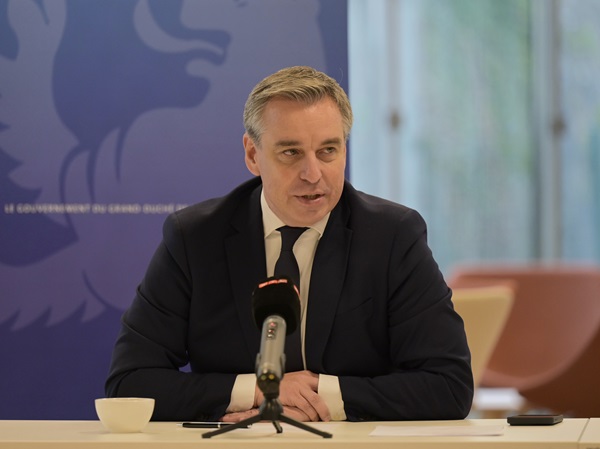 Luxembourg’s Minister of Education, Children and Youth, Claude Meisch;
Credit: MENEJ
Luxembourg’s Minister of Education, Children and Youth, Claude Meisch;
Credit: MENEJ
On Wednesday 29 November 2023, Luxembourg’s Minister of Education, Children and Youth, Claude Meisch, outlined the new government’s education, childhood and youth priorities; he notably confirmed the planned opening of three new public international schools and more linguistic flexibility to suit students’ needs.
Education has been and remains a major challenge on which the future of new generations and society at large is built, Luxembourg’s Education Minister stressed: “Adapting education to changes in society is an ongoing challenge. To answer this, we have moved forward together in recent years. We must continue on this path in order to adapt our education system to today's Luxembourg.”
According to the minister, over the last ten years, a lot of the focus was on placing children at the centre of concerns in both formal and non-formal education. Over the next five years, the “ambition” will be to bring formal and non-formal education closer together, to place them on an equal footing and to develop equally, in both areas.
According to the minister, Luxembourg education policy will prioritise scientific support, stakeholder collaboration and a “good” start in the educational journey. More specifically, it will encourage cooperation among stakeholders to provide each pupil with optimal opportunities for academic and personal development. Investments in nursery quality and early childhood education will be emphasised to ensure children's optimal support throughout their educational journey. To this end, cycles 1.1 and 1.2 will be introduced for pupils in primary education. A second professional will work in close collaboration with the teacher to adapt the teaching to the needs of the child and to ensure that they have the best chances to start their school career, explained the minister.
Moreover, the policy advocates the continuation of the pilot project for elective literacy in French. Teachers will continue to be trained throughout the country with a view to gradual expansion, at the national level, from the 2026-27 school year. Efforts will be made to integrate formal and non-formal education, guaranteeing full-time educational provision for every child by 2030, the minister noted. He added that the new primary education study plan aims to adapt school programmes to the demands of society, fostering skills such as creativity, collaboration, critical thinking, multilingualism and digital technology.
Professional training will focus on promoting craftsmanship and diversifying vocational training. Modernisation efforts include new qualifying courses and expanding training centres. "Higher professional training" will be introduced for continuing education after the professional aptitude diploma (DAP) and technician diploma (DT).
The linguistic offer will aim to accommodate the diversity of the school population, with the establishment of three new public international (European) schools to meet the demand of children joining Luxembourg public schools from other countries. An ongoing analysis of how teaching develops and of the experiences of a heterogeneous school population in the international system is planned. Public schools that follow the national curriculum and those following the European curriculum will also have an exchange to provide students with optimal educational approaches. Furthermore, flexibility in language teaching in secondary education will aim to allow students more choices.
Minister Meisch added that educational inclusion remains a priority with strengthened support teams and enhanced efforts in non-formal education, through support teams for children with special needs (Équipe de Soutien des Élèves à Besoins spécifiques - ESEB). The network of specialist educational psychology skills centres will be extended to ensure accessibility for all children. The minister also highlighted parental support through modern child and family support, expansion of outpatient preventive offers and collaboration with schools.
Efforts to prevent school dropouts will involve expanding the network of professional integration centres to support at-risk students. A specific school offer will be created for secondary school students with behavioural disorders. The policy emphasises well-being through strengthened psychosocial teams, cooperation with non-formal sector professionals and the implementation of a national anti-bullying programme, noted the minister.
In addition, youth centres will be expanded to offer more opportunities outside of school and housing options with professional supervision will be provided for young people facing difficult family environments. Continuous development will be facilitated through pilot projects, evaluating and possibly generalising initiatives such as optional literacy in French. The evaluation and adaptation of the 2009 law on primary education, examination of assessment and promotion systems and the development of a new organisational concept for secondary school grades in collaboration with school partners will also form part of the ongoing efforts, the minister added.








